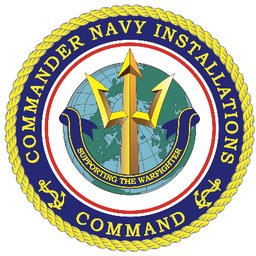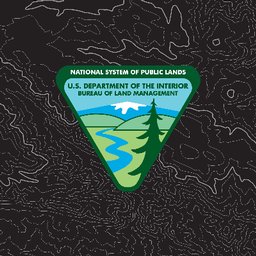Job Opportunities in United States

August 23, 2024
City of Dubuque, IA
Dubuque
Firefighter
Position Summary
Candidate Physical Ability Test (CPAT) Orientation and Testing Dates
Orientation:
Wednesday September 11, 2024 at 6:30 p.m.
Saturday September 14, 2024 at 9:00 a.m.
Practice:
Wednesday October 9, 2024 at 6:30 p.m.
Saturday October 12, 2024 at 9:00 a.m.
Final:
Saturday November 9, 2024 at 9:00 a.m.
Written Test Dates
Monday December 2, 2024 at 6:00 p.m.
Tuesday December 3, 2024 (Virtual Option)
Saturday December 7, 2024 at 9:00 a.m.
CPAT and in-person testing location is the Dubuque County Emergency Responder Training Facility 14928 Public Safety Way Dubuque, IA 52002
Under the direction of a company officer (Lieutenant or Captain) the Firefighter Paramedic is tasked with providing advanced life support, emergency medical care, and firefighting services to ensure the safety and well-being of the community. As a Firefighter Paramedic, individuals are expected to respond promptly to a variety of emergency situations, demonstrating a unique blend of medical expertise and firefighting skills. Supplemental duties include specialty team response, fire prevention, public education, community risk reduction, community resiliency, and disaster preparedness and response. The ideal candidate has the desire to be part of an organization that values service, people, integrity, responsibility, innovation, and teamwork.
Members hired as Emergency Medical Technicians will require certification to the paramedic level within two years after employment. Certification will be the responsibility of the employee. Ability to hire Emergency Medical Technicians from the eligibility list will be determined by staffing levels and operational need.
DISTINGUISHING FEATURES OF THE CLASS:
Emergency Medical Expertise: Firefighter Paramedics possess advanced knowledge and skills in pre-hospital emergency medical care, including the ability to assess, diagnose, and treat a wide range of medical conditions.
Fire Suppression Abilities: In addition to medical responsibilities, individuals in this role are trained in fire suppression techniques, hazardous materials response, and other firefighting duties to address diverse emergency scenarios.
Team Collaboration: Firefighter Paramedics work collaboratively within a team environment, interacting with other emergency responders and agencies to provide comprehensive emergency services.
Environmental Considerations: Firefighter Paramedics operate in diverse and challenging environments, including extreme temperatures, which may range from freezing cold to intense heat. They must adapt to varying weather conditions and be prepared to work in situations that may expose them to extreme temperatures.
Heavy Demands of Physical Labor: The role requires a high level of physical fitness and stamina to perform strenuous tasks such as lifting heavy equipment (over 50 lbs. frequently), carrying/ moving patients over 100 lbs., frequent stooping, kneeling, crouching, crawling, reaching, and navigating through challenging terrain while wearing protective gear. The position also includes long periods of walking or standing, exposure to increased noise levels, traffic hazards and potential violent behavior.
Working in Confined Areas: Firefighter Paramedics are trained to operate in confined spaces, such as buildings, tunnels, or collapsed structures, to rescue individuals and provide emergency medical care.
Working from Extreme Heights: Responders may be required to work at significant heights, necessitating the use of specialized equipment and techniques to perform rescues or address emergencies in elevated locations.
Working in Firefighting Equipment: The role involves the frequent use of firefighting gear, including protective clothing, helmets, and gloves, to ensure personal safety while performing firefighting and rescue activities.
Wearing of a Self-Contained Breathing Apparatus (SCBA): Firefighter Paramedics routinely wear SCBAs to navigate smoke-filled environments, providing the ability to breathe in conditions where oxygen may be limited. Employees must qualify each year for appropriate clearance of SCBA/ respirator use.
Working in Limited Visibility: Responders often encounter situations with poor visibility due to smoke or darkness. The ability to perform duties effectively in such conditions is crucial for ensuring the safety of themselves and others.
Working in Specialty Areas: Firefighter Paramedics may be called upon to handle hazardous materials incidents, requiring specialized training and equipment. Additionally, knowledge of technical rescue operations and equipment is essential.
Unknown Emergency Situations: The nature of emergencies can be unpredictable, requiring adaptability and the ability to make quick, informed decisions in high-pressure situations.
These distinguishing features underscore the versatile and demanding nature of the Firefighter Paramedic role, highlighting the need for individuals in this class to be well-prepared for a wide range of challenges associated with emergency response.
Orientation:
Wednesday September 11, 2024 at 6:30 p.m.
Saturday September 14, 2024 at 9:00 a.m.
Practice:
Wednesday October 9, 2024 at 6:30 p.m.
Saturday October 12, 2024 at 9:00 a.m.
Final:
Saturday November 9, 2024 at 9:00 a.m.
Written Test Dates
Monday December 2, 2024 at 6:00 p.m.
Tuesday December 3, 2024 (Virtual Option)
Saturday December 7, 2024 at 9:00 a.m.
CPAT and in-person testing location is the Dubuque County Emergency Responder Training Facility 14928 Public Safety Way Dubuque, IA 52002
Under the direction of a company officer (Lieutenant or Captain) the Firefighter Paramedic is tasked with providing advanced life support, emergency medical care, and firefighting services to ensure the safety and well-being of the community. As a Firefighter Paramedic, individuals are expected to respond promptly to a variety of emergency situations, demonstrating a unique blend of medical expertise and firefighting skills. Supplemental duties include specialty team response, fire prevention, public education, community risk reduction, community resiliency, and disaster preparedness and response. The ideal candidate has the desire to be part of an organization that values service, people, integrity, responsibility, innovation, and teamwork.
Members hired as Emergency Medical Technicians will require certification to the paramedic level within two years after employment. Certification will be the responsibility of the employee. Ability to hire Emergency Medical Technicians from the eligibility list will be determined by staffing levels and operational need.
DISTINGUISHING FEATURES OF THE CLASS:
Emergency Medical Expertise: Firefighter Paramedics possess advanced knowledge and skills in pre-hospital emergency medical care, including the ability to assess, diagnose, and treat a wide range of medical conditions.
Fire Suppression Abilities: In addition to medical responsibilities, individuals in this role are trained in fire suppression techniques, hazardous materials response, and other firefighting duties to address diverse emergency scenarios.
Team Collaboration: Firefighter Paramedics work collaboratively within a team environment, interacting with other emergency responders and agencies to provide comprehensive emergency services.
Environmental Considerations: Firefighter Paramedics operate in diverse and challenging environments, including extreme temperatures, which may range from freezing cold to intense heat. They must adapt to varying weather conditions and be prepared to work in situations that may expose them to extreme temperatures.
Heavy Demands of Physical Labor: The role requires a high level of physical fitness and stamina to perform strenuous tasks such as lifting heavy equipment (over 50 lbs. frequently), carrying/ moving patients over 100 lbs., frequent stooping, kneeling, crouching, crawling, reaching, and navigating through challenging terrain while wearing protective gear. The position also includes long periods of walking or standing, exposure to increased noise levels, traffic hazards and potential violent behavior.
Working in Confined Areas: Firefighter Paramedics are trained to operate in confined spaces, such as buildings, tunnels, or collapsed structures, to rescue individuals and provide emergency medical care.
Working from Extreme Heights: Responders may be required to work at significant heights, necessitating the use of specialized equipment and techniques to perform rescues or address emergencies in elevated locations.
Working in Firefighting Equipment: The role involves the frequent use of firefighting gear, including protective clothing, helmets, and gloves, to ensure personal safety while performing firefighting and rescue activities.
Wearing of a Self-Contained Breathing Apparatus (SCBA): Firefighter Paramedics routinely wear SCBAs to navigate smoke-filled environments, providing the ability to breathe in conditions where oxygen may be limited. Employees must qualify each year for appropriate clearance of SCBA/ respirator use.
Working in Limited Visibility: Responders often encounter situations with poor visibility due to smoke or darkness. The ability to perform duties effectively in such conditions is crucial for ensuring the safety of themselves and others.
Working in Specialty Areas: Firefighter Paramedics may be called upon to handle hazardous materials incidents, requiring specialized training and equipment. Additionally, knowledge of technical rescue operations and equipment is essential.
Unknown Emergency Situations: The nature of emergencies can be unpredictable, requiring adaptability and the ability to make quick, informed decisions in high-pressure situations.
These distinguishing features underscore the versatile and demanding nature of the Firefighter Paramedic role, highlighting the need for individuals in this class to be well-prepared for a wide range of challenges associated with emergency response.
Job Duties
- Emergency Medical Response: Respond to emergency medical calls, assess the condition of patients, administer appropriate medical interventions, and transport individuals to medical facilities. Provide community service coverage as needed.
- Fire Suppression: Engage in fire suppression activities, including deploying hoses, operating firefighting equipment, rescuing people, understanding the characteristics of fire, fire behavior, ventilation, and flow paths, and executing fire ground tactics to extinguish fires and mitigate hazards.
- Rescue Operations: Perform technical rescues, such as extricating individuals from vehicles, confined spaces, high-angle rescue situations, and water rescue incidents.
- Training and Education: Participate in ongoing training programs to enhance and maintain medical and firefighting skills. Maintain appropriate records for continuing education and proper documentation of required training.
- Excellent Customer Service: Provide compassionate and effective customer service to individuals in distress, displaying empathy and professionalism during emergency situations. The ability to communicate clearly and calmly with all members of the community is essential.
- Community Engagement: Demonstrate the ability to present public education and prevention presentations to residents, contributing to proactive efforts in fire prevention and safety awareness.
- Collaboration with Community Partners: Interact with a variety of community partners in the delivery of fire and EMS services. Collaborate with local agencies, schools, and organizations to enhance community safety and emergency response efforts.
- Communication Skills: Effectively communicate in written and verbal forms, utilizing mobile and portable radio systems. Collaborate with dispatchers to relay critical information and ensure a coordinated response. Properly document EMS patient care reports, fire reports, vehicle, and equipment inventory reports.
- Collaboration with Law Enforcement: Work collaboratively with law enforcement agencies during emergency responses, ensuring effective coordination and cooperation in multi-agency incidents.
- Certification Maintenance: Maintain professional certifications and licenses, staying current with industry standards and best practices.
- Adherence to Safety Standards: Strictly adhere to safety standards and protocols, promoting a culture of safety within the department. Demonstrate a commitment to the well-being of oneself and fellow emergency responders.
- Emergency Response Vehicle Operation: Properly operate emergency response vehicles, adhering to traffic laws and department policies to ensure safe and efficient travel to emergency scenes.
- Knowledge of Laws and Regulations: Possess knowledge of and adhere to local, state, and federal rules and laws, ensuring legal compliance in all aspects of duties.
- Other Duties as Assigned: Be flexible and adaptable, willing to take on additional responsibilities and tasks as assigned by superiors or as dictated by the needs of the emergency response organization and community. Position is subject to recall.
KNOWLEDGE, SKILLS AND ABILITIES:
- Advanced Life Support Skills: Proficient in providing advanced life support interventions, including cardiac monitoring, administration of medications, and advanced airway management. Operate under the direction of a project medical director.
- Firefighting Techniques: Knowledge of modern firefighting tactics, equipment, and strategies for effectively combating fires and ensuring the safety of self and others.
- Emergency Response Coordination: Ability to coordinate with other emergency personnel, agencies, and departments to ensure a seamless and efficient response to emergencies.
- Learning Relevant Tools and Equipment: Demonstrate the ability to quickly learn and proficiently use the various tools and equipment essential for both firefighting and emergency medical response. This includes familiarity with medical devices, firefighting apparatus, and specialized tools for rescue operations.
- Understanding Department Policies: Possess a comprehensive understanding of department policies, procedures, and general orders to ensure compliance with established protocols during emergency response situations. This includes adherence to safety guidelines and organizational standards.
- Knowledge of Building Construction and Fire Protection Systems: Acquire and apply knowledge of building construction types and fire protection systems to assess potential hazards, strategize firefighting efforts, and enhance overall emergency response effectiveness.
- Active Listening Skills: Demonstrate strong active listening skills to understand and interpret information received during emergency calls, effectively gathering critical details for informed decision-making.
- Situational Awareness and Critical Thinking: Maintain a high level of situational awareness to assess dynamic and evolving emergency scenes. Apply critical thinking skills to make swift and informed decisions in high-pressure situations.
- Deductive and Inductive Reasoning Skills: Exhibit excellent deductive and inductive reasoning skills, allowing for the quick analysis of complex situations and the formulation of effective response strategies.
- Peak Physical and Mental Health: Sustain peak physical and mental health at all times, showcasing exceptional stamina, dexterity, and strength to perform physically demanding tasks in challenging environments.
These knowledge, skills, and abilities underscore the well-rounded and adaptable nature required of Firefighter Paramedics, emphasizing a combination of technical expertise, interpersonal skills, and a commitment to continuous learning and improvement.
Qualifications
MINIMUM QUALIFICATIONS:
- Possession of a high school diploma or its equivalent.
- Possession of or ability to obtain and maintain a valid Iowa driver’s license.
- Must possess at least one of the following: current State of Iowa Emergency Medical Technician certification, National Registry Emergency Medical Technician certification, State of Iowa Paramedic certification, or National Registry Paramedic certification. (Must hold a State of Iowa Paramedic certification within two (2) years.)
PREFERRED QUALIFICATIONS:
Experience as a paramedic or in an emergency medical service role.
Supplemental Information
FLSA STATUS: Non-exempt
RESIDENCY REQUIREMENT: Every person hired or appointed to this position is required to have and maintain principal residence either within the corporate limits of the city of Dubuque or within fifty (50) miles of the corporate limits of the City of Dubuque by the most direct street, road, or highway, as soon as practical after employment date or appointment, but within two (2) years of the date of employment or appointment.
This position falls under Iowa Civil Service Chapter 400 which requires each applicant to take and receive a passing score on an approved civil service exam to be considered for this Position.
Our Commitment to You
We are committed to using a merit-based system in which recruiting, selecting, and advancing employees is based on their relative knowledge, skills, and abilities. The City of Dubuque values a culture of equity, diverse perspectives, and life experiences. Our organization embraces innovation, collaboration and work-life harmony. We offer job stability, a comprehensive benefits package, and an opportunity to serve and support our diverse community. We are an equal opportunity employer with a commitment to diversity and an inclusive workforce. Women, minorities, veterans, and people with disabilities are encouraged to apply.
We are committed to using a merit-based system in which recruiting, selecting, and advancing employees is based on their relative knowledge, skills, and abilities. The City of Dubuque values a culture of equity, diverse perspectives, and life experiences. Our organization embraces innovation, collaboration and work-life harmony. We offer job stability, a comprehensive benefits package, and an opportunity to serve and support our diverse community. We are an equal opportunity employer with a commitment to diversity and an inclusive workforce. Women, minorities, veterans, and people with disabilities are encouraged to apply.
We regret to inform you that this job opportunity is no longer available
Latest Job Opportunities



September 23, 2024
Fresh Dental Care PC
Dental Patient Care Coordinator - $30-$35/hour
JBER
FULL TIME
View Details
September 23, 2024
North Slope Borough, AK
Prudhoe Bay Regional Coordinator - SCC
Prudhoe Bay
FULL TIME
View DetailsSimilar Jobs

September 10, 2024
US Commander, Navy Installations
FIREFIGHTER (BLS/HAZMAT TECHNICIAN)
Kittery
PART TIME
View Details
September 5, 2024
U.S. Fish and Wildlife Service
Wildland Firefighter
Elmendorf AFB
FULL TIME & PART TIME
View Details

September 10, 2024
US Bureau of Land Management
Supervisory Wildland Firefighter (IHC Superintendent/Veteran Hand Crew Superintendent) - DHA
Fairbanks
View DetailsSeptember 10, 2024
US Interior, Bureau of Indian Affairs
Wildland Firefighter - Direct Hire Authority
Pine Ridge
OTHER
View DetailsAugust 28, 2024
City of Russellville, AR
Entry Level Firefighter
Russellville
FULL TIME
View DetailsNew Jobs from This Company

